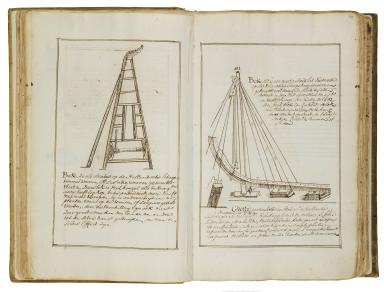Medical-Critical Letter Written by Doctor Joseph Vita Castelli to His Friend, a Doctor, Regarding a Serious and Complicated Case of Acute Fever
Joseph Vita Castelli
1774
Art, which gives men the means to persevere and cure some sicknesses, seems nowadays to depend on philosophy, which is that great and clear source that produces all that is luminous and useful. I am not speaking about the haughty and fanatical philosophy that transports the intellect of certain men and claims to be able to explain and understand everything, and which is behind the primary essential causes of things, occupying itself completely to that end in useless investigations. Rather, I am speaking of that philosophy which regulates and corrects medical reasoning, and from which, as a solid trunk, the assiduous study of nature branches out, pointing to the correct use of criteria to discover the simple or true aspect, the circumspect and prudent expectation, in order to understand inclinations better, to support movements and continence in the end, and to find golden moderation in the use of so many celebrated remedies, only authorized by ignorance and by stupid credulity. This is, it seems to me, the most noble and most useful and worthy medical philosophy, and through its splendor people will be less likely to fall into error and allow themselves to be seduced by false opinions that in various periods in the past were either too much in favor or too much against the healing art that circulated among men.
The innocent nature of the philosophy of this luminous and felicitous century no longer leads the solitary thinker to revolt against the quarrelsome caprice of certain limited wits, nor to save himself from the fanatical ambition of those who are falsely wise; nor to admire, with a jealous quiver, the random, honored faith of illustrious yet ignorant people. Without these, the most noble and laudable reforms, truly worthy of the felicitous progress of the human spirit and of those marvelous lights, the eighteenth century can rightfully claim to flourish. It would seem to me that those cultivated nations that are able to counteract the vile and evil passions and satire with philosophical restraint are placed highly; they are those in which men mutually respect each other, showing a good example to their peers, and providing each other with an illustrious example to follow.
In fact, the method of suffocating those who suffer from acute sicknesses, through the use of many layers of clothes, and of keeping them enclosed in their own rooms as in a dark prison, of avoiding any contact with the air and making them putrefy in their own sordid feathers, is a method that nowadays is not only held in contempt by the most renowned writers and the most enlightened schools in Europe but is also abhorred and considered pernicious by those men who are distinguished by common sense, who are led to understand what truly is advantageous to their health.
Perhaps one day I might demonstrate the weak forces of my limited understanding and, desirous of the glories of the motherland and of those who are always famous and bestowed by the benevolent sovereign who sustains us, I will be able more openly to explain my ideas to the public. In this I will be accompanied by some particular story that can serve as an illustrious and eternal monument to the true, almost original Tuscan wisdom and to the honorable recognition of various sublime geniuses whom she can call, at various times, fecund mother and nurturer.
Credits
Published in: The Posen Library of Jewish Culture and Civilization, vol. 6.




